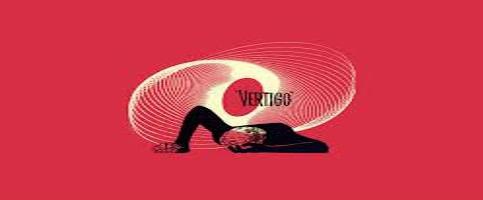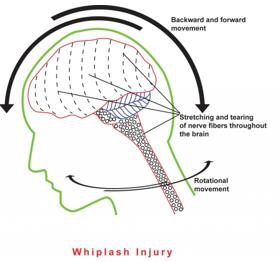We all have heard about the Newton’s famous law of inertia or the Einstein’s world known theory of relativity. The base line of both the theories is same. A stationary body feeling a change in its relative motion and this is what vertigo is all about. A feeling or sensation of spinning as felt by human mind. It may be in two ways, either the mind feels that the person is spinning which is also called subjective Vertigo or it may be the other way round that the person is static and world is spinning which is called objective vertigo. In both cases, it’s the relative motion between person and the world. Any one of the two will be spinning with respect to the other. In this article we will be looking at what causes vertigo, vertigo symptoms, vertigo causes and the dizziness causes due to vertigo
Before studying the symptoms of vertigo in detail, if you know but we all have experienced this feeling being kids. Let me give you a couple of examples to make a better understanding of it. Remember playing in the park or taking rides in machines? Each time we came out of it, it felt like the world is spinning around us. Although it was very temporary feeling and lasted for only a few minutes before vanishing completely but it’s the same. We also experience same feeling after playing a 3D game for a long time as result is same with a sensation of spinning things around us.

Symptoms Of Vertigo
Classification
There are basically two types of vertigo, central and peripheral. Symptoms of vertigo for both the types are different. Central Vertigo is related to brain and spine while peripheral is related to problems in ears.
Prevalence
Symptoms of vertigo can appear in anyone from children to old age adults can experience it. The rate is 30 to 40 percent more in females as compared to males but severity increases with growing age because our mind becomes weaker than it was in early ages and its resistance against any such sensation going against the stability decreases. This is one of the major dizziness causes in adults.
Ear Problems
Before understanding the symptoms of vertigo, it is crucial to know what causes vertigo and vertigo symptoms to appear. If you hear bells ringing in your ears or you have listening problems than you may be prone to vertigo.
Whiplash
Head injuries are one of the major vertigo causes for people to experience any sort of symptoms of vertigo. Anything that effect the brain will result in this situation such as tumors, hemorrhage and strokes are also a reason for vertigo. They appear very commonly in patients of migraine.
Some of the drugs also results in the development of vertigo. Patients with medication on tranquilizers, anti-seizure, anti-depressants, blood pressure or sometimes aspirin may undergo the symptoms of vertigo. Anything that is prone to heart stroke may also result in an increased risk of vertigo.
Signs and Symptoms
While explaining the symptoms of vertigo in detail, it must be noted that vertigo symptoms themselves directs towards some medical ailments. It is basically perceived in mind as things spinning around you. If you are experiencing any such signs and symptoms, you must know what is vertigo so it may not be confused with fainting or unconsciousness but that’s not the case actually. Similarly it must not be mixed with motion sickness. It may be possible that you lose your stability due to continuously moving in an un-recognized motion sequence and experience instability for a short while but that is not vertigo in particular.
Symptoms of vertigo purely include a feeling of puzzlement. You may experience nausea or vomiting, intense sweating or abnormal eye movement, some major dizziness causes. It may last to some minutes or sometimes it may prolong up to few hours. These may be continuous or can appear in pieces or maybe in a series. The intensity will remain constant if you are in a static position but it will increase with movements specially, if it includes rolling over the bed in discomfort.
An Accident or Incident
If you have undergone any recent incident or occurrence involving head injury or any stroke activity or if you have started to take medication (mentioned earlier in this article) due to any reason than you may consult your doctor at the earliest.
Other symptoms of vertigo may include hair loss or the person may have vision problem with disturbances in visual activity. It may be a blurred vision or blacking out or even double vision. You may feel weakness all along and it may not go by any intake in fact it can cause nausea.
What is vertigo, it is basically a disturbance in the balance of your brain. With an instable brain you may experience difficulty in speaking or even difficulty in understanding things. Your consciousness may reduce significantly. It will be difficult for you to stand properly or walk steadily. You may also experience weakness in your arms and legs.
Conclusion
Despite going through all the symptoms of vertigo and understanding vertigo causes to a reasonable extent, the evaluation of vertigo cannot be determined just on causes or symptoms. It may be due to some other reason as brain is quite a complex mechanism. For confirmation on whether you are patient of vertigo or what causes vertigo in you, a detailed medical exam or medical history is mandatory.
You may be tested on the basis of motion sensation which can identify the presence of vertigo. With the examination of eye movement or abnormal sweating in addition to nausea to a certain extent also directs towards vertigo.
Your medical specialist may inquire about the duration of this condition that for how long have you been experiencing this situation and whether it was temporary or it occurs more frequently. Secondly do they appear with changing directions or changing position in a continuous pattern? Or does it ring in your ears? A complete and detailed examination of ears also helps a lot.
There may be a requirement to check your body responses with the help of multiple medical analysis or tests such as CT scan, blood test or even sugar level tests. A brief history of medication is also required to for the confirmation of vertigo.





View All Comments /Add Comment